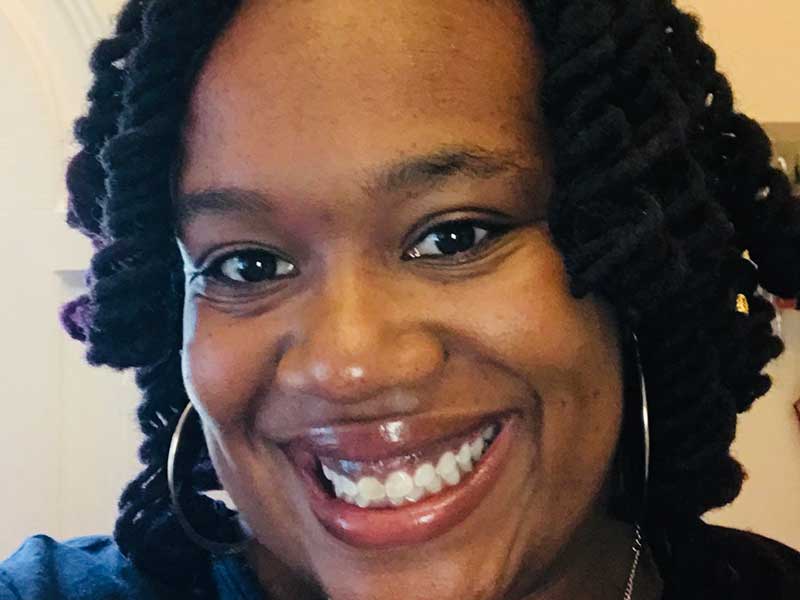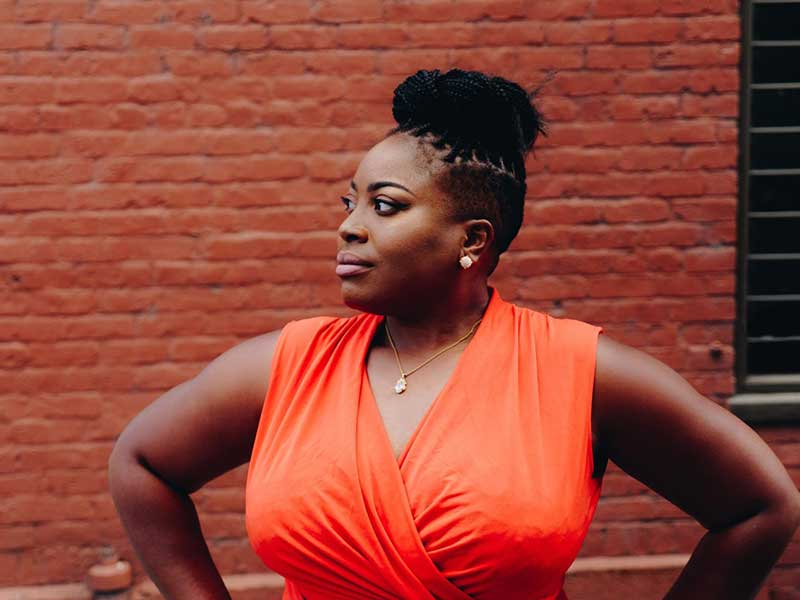This burden, as I define it here, is the two-fold problem of continually supporting a party that does little to elevate Black women’s positions within the party or the electorate. It would seem as if their support is continually taken for granted, despite the evidence showing how integral Black women’s support is to a functioning democracy—so important, in fact, that the Republican Party has gone to great lengths to suppress that vote and the activities associated with it. It is most puzzling why Black women continually carry this burden for a country that routinely and systematically oppresses them. In the words of Malcolm X,
“The most disrespected woman in America is the Black woman. The most unprotected person in America is the Black woman. The most neglected person in America is the Black woman.” May 5, 1962 (At the funeral service for Richard Stokes)
In spite of this, Black women are a force to be reckoned with, in both the electorate and the Democratic Party. They break down barriers and achieve feats once thought impossible as a result of discriminatory practices and laws that prohibited them from voting and running for elected office. So why do Black women continually carry the burden of democracy for a country that routinely and systematically oppresses them? The answer to the question of why seems to be that Black women know that democracy, and the very institutions that sustain this democracy, are at risk of being dismantled. In the following section, I point to a number of relevant examples of Black women’s tour de force in both the electorate and the Democratic Party.
"In this 2020 election, the legitimacy of the U.S. democracy and its institutions are at stake and no group understands this more than Black women."
Cases
The Electorate
Douglas Jones vs. Roy Moore
In the 2017 Alabama Senate race, Douglas Jones went up against Roy Moore. Doug Jones, a Democrat in a deep red state, had a predicted slim chance of winning the Senate race. However, Roy Moore had a controversial background, where he had been accused of sexually abusing teenage girls. Black women came out in record numbers to vote for Doug Jones. He won his Senate race, the first Democrat in a generation to win a Senate seat in Alabama, with the overwhelming support of Black women voters, 98% of whom cast their ballots for the Democrat. According to CNN exit polls, only 34% of white women voted for Jones with 63% of that voter bloc offering their support to Moore, who had questionable relationships with underage girls, instead of Doug Jones.
“Doug Jones would not have won today without the turnout we saw from African American voters,” said Simone Sanders, a Democratic strategist. “Black women have been absolutely clear in their support for Democratic policies and Democratic candidates. It’s high time for Democrats to invest in that effort.”
Hillary Clinton vs. Donald Trump
In the highly contested 2016 presidential race, where the first woman ran for president of the United States, Black women were some of Democratic candidate Hillary Clinton’s most solid supporters. “According to exit polls, more than 90% of Black women voted for Clinton, continuing the trend that shows that few demographic groups are as faithful to the Democratic Party as Black women” (Scott, 2017). Although Clinton did not win the presidency, the power of Black women’s support was key to her success in many states. When broken down by race, the majority of non-college-educated white women (64%) voted for Trump, while 35% backed Clinton. Black, Hispanic and other non-white women backed Clinton in far greater numbers (Black women with the highest percentage, 95%, Hispanic women, 70%, and other non-white women, 81%).
Ralph Northam vs. Ed Gillespie
The 2017 Virginia governor’s race was key in sending the newly elected president Donald Trump a message. The governor’s race was interpreted as signaling people’s dislike of the direction the country was headed with Donald Trump at the helm. Virginia for decades has been a decidedly red state, but it more recently has been flagged as a purple or swing state. In looking at the votes by gender and race, it becomes clear that Northam rode into office on the backs of Black women who overwhelmingly voted for him. In comparison to all other groups, Black women voted for him in the highest numbers. (View demographic breakdown of the Virginia statewide election by gender and race.)

The Party
In the same vein, Black women have an important and impressive presence in the Democratic Party. These are only a few but significant examples.
- Yvonne Spicer is the first Black female mayor in the 317-year history of Framingham, Massachusetts
- Vi Lyles is the first Black female mayor of Charlotte
- Mary Parham-Copelan is the first Black mayor of Milledgeville, Georgia
- Andrea Jenkins is an openly transgender Black woman elected to office in the Minneapolis City Council race
- On November 6, 2018, Muriel Bowser became the first woman ever re-elected as the mayor of Washington D.C. and the first mayor to earn a second term in 16 years
- In 2019, Lori Lightfoot became the first LGBTQ mayor and first Black woman mayor of Chicago
These cases suggest the importance of Black women in both the electorate and the Democratic Party. Many will point to Kamala Harris’ selection as Joe Biden’s vice presidential candidate as significant evidence that the Democratic Party recognizes the importance of Black women. After all, the Democrats seem to have rewarded Black women’s support with a selection of a Black female vice president. On the other hand, considering the importance Black women’s votes have played in the electorate, it would seem that this selection is strategic. Joe Biden is not everyone’s first pick. In reality, he is a Democratic pick that is an attempt to appeal to moderate whites. In choosing Kamala Harris, the Democratic Party solidified Black women's support in the 2020 election. But the reality is, Black women would have supported Joe Biden without Kamala Harris’ selection. This is because Black women know what is at stake in this year's election and in every election. Democracy and the legitimacy of our institutions are always on the ballot. It may be that due to their continued oppression, Black women have never had the freedom to “sit out” of an election. Their very identity is at risk and the burden of democracy is fully felt by this group.
American democracy has never been available to all groups in this country, least of all, Black women. It is the only system and avenue Black women have in the attempts to achieve equality. In questioning Black women’s voter turnout and consistent support of the Democratic Party, the answer may very well be in their experience with oppression. This is a heavy burden to bear, but one that Black women deem worth the effort. In this 2020 election, the legitimacy of the U.S. democracy and its institutions are at stake and no group understands this more than Black women.
Further Reading
- "What the 2020 election is all about," NPR, 2/2/20
- "Who taught you to hate yourself?" Malcolm X, 5/5/1962
- "Doug Jones won because of Black women trying to 'Save America'," Newsweek, 12/13/17
- "An examination of the 2016 electorate, based on validated voters," Pew Research Center, 8/9/18
- "The Democratic Party owes black female voters a big ‘thank you’," The Washington Post, 11/9/17
- Muriel Bowser's biography page, Government of the District of Columbia
- "How Black women shape Democratic politics," Associated Press, 8/3/20
About the Author

Jatia Wrighten, Ph.D., conducts research on Black women, state legislatures and leadership, with an emphasis on intersectionality. Her current project examines the differences in leadership attainment that exists between Black women, white women, Black men and white men in state legislatures and what are the factors that cause these differences. She created the novel theory, the Heavy Lifters Theory, to explain the primary differences between Black male and Black female legislators as it relates to leadership in state legislatures. She was most recently awarded the Gender and Leadership Dissertation Award from George Mason University for her work that focuses on intersectionality and leadership. She has taught a range of political science courses at James Madison University, George Mason University and Northern Virginia Community College. Her courses have included Introduction to American Government, Research Methods, The Politics of Motherhood in the United States and Political Parties and Campaigns—to name a few.
She looks forward to continuing research and instruction that emphasizes themes of equality, justice and political effects for the most marginalized groups in the United States as an assistant professor at VCU.
Wrighten earned her B.A. in political science from Virginia Commonwealth University, her M.A. in political science from the University of Maryland, College Park, and her Ph.D. from the Schar School of Policy and Government at George Mason University, where she defended her dissertation entitled, “Who Runs the World? An Examination of Black Women and Leadership in State Legislatures.” Wrighten plans to use her degree to teach and serve as a mentor to a future generation of scholars. When she is not researching and writing, she enjoys traveling with her family.
